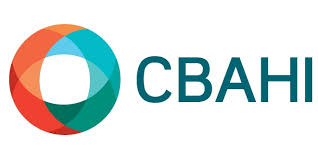
What is CBAHI Accreditation and Why It Matters
The Central Board for Accreditation of Healthcare Institutions (CBAHI) is Saudi Arabia’s official body responsible for setting and maintaining healthcare quality and patient safety standards across hospitals, clinics, and medical centers. Established under the Saudi Ministry of Health, CBAHI ensures that all healthcare facilities in the Kingdom meet international levels of care while following local regulations and best practices.
CBAHI accreditation is not just a certificate — it is a symbol of trust, quality, and safety. When a hospital or clinic becomes CBAHI-accredited, it shows that the institution has met rigorous standards for patient care, infection control, management, and clinical operations.
For healthcare providers, obtaining this accreditation means aligning with Saudi Vision 2030 goals to elevate healthcare excellence and ensure a safer, more efficient medical environment for every patient.
Understanding CBAHI Accreditation Standards
To maintain consistency and reliability in healthcare services, CBAHI accreditation standards serve as the backbone of the entire process. These standards are regularly updated by healthcare experts and are designed to guide hospitals toward continuous improvement.
Core Areas of CBAHI Standards
- Patient Safety and Quality Care – Ensuring that hospitals follow safe clinical practices, manage risks, and reduce medical errors.
- Leadership and Management – Strong governance, accountability, and effective decision-making at every organizational level.
- Infection Prevention and Control – Adhering to strict hygiene and sanitation protocols to prevent hospital-acquired infections.
- Facility and Equipment Management – Proper maintenance, calibration, and safety checks of medical equipment.
- Human Resources and Training – Ensuring staff competency, certification, and regular professional development.
- Clinical Care and Patient Rights – Focusing on evidence-based medical practices and respecting patient confidentiality and dignity.
Each healthcare facility—whether a hospital, primary care center, dental clinic, or laboratory—has a unique set of CBAHI criteria tailored to its type of service.
Step-by-Step CBAHI Accreditation Process
Achieving CBAHI accreditation in Saudi Arabia is a structured process that evaluates a healthcare institution’s readiness, compliance, and quality improvement journey.
1. Application and Registration
Hospitals start by submitting an application through the CBAHI online portal. This includes basic facility information, license details, and commitment to follow accreditation procedures.
2. Self-Assessment Phase
Before the official inspection, facilities conduct an internal self-assessment using CBAHI’s detailed checklist. This helps identify gaps between current practices and required standards.
3. Documentation and Policy Development
Healthcare organizations prepare essential policies, procedures, and manuals—covering everything from infection control to medication management. Proper documentation demonstrates systematic compliance.
4. On-Site Survey and Evaluation
A team of CBAHI surveyors visits the facility for on-site inspections. They assess departments, interview staff, and observe day-to-day operations. The goal is to verify that standards are not only documented but also practiced consistently.
5. Review and Accreditation Decision
After the survey, CBAHI compiles a detailed report highlighting strengths and areas needing improvement. Facilities that meet the required percentage score receive official accreditation, valid for a specific duration (usually 3 years).
6. Continuous Monitoring and Renewal
Even after accreditation, hospitals must engage in ongoing monitoring to maintain compliance. Regular updates and audits ensure that patient safety and quality remain top priorities.
Benefits of CBAHI Accreditation for Hospitals
Becoming CBAHI-accredited delivers numerous advantages to both healthcare institutions and their patients.
1. Enhanced Patient Safety
Accredited hospitals must follow structured safety protocols that minimize medical errors and infections. This leads to better patient outcomes and higher satisfaction.
2. Improved Quality of Care
With a focus on evidence-based medicine and staff competency, CBAHI accreditation ensures consistent, high-quality healthcare delivery across all departments.
3. Strengthened Reputation
CBAHI accreditation boosts an institution’s credibility and reputation among patients, insurers, and regulatory bodies. It signals trust and professionalism in Saudi Arabia’s competitive healthcare sector.
4. Compliance with MOH Regulations
CBAHI accreditation aligns directly with the Saudi Ministry of Health’s national goals, making it easier for hospitals to meet legal and regulatory obligations.
5. Operational Efficiency
By standardizing processes and improving staff communication, accreditation helps reduce waste, delays, and inefficiencies—resulting in optimized hospital management.
6. Competitive Advantage
CBAHI-accredited hospitals attract more patients, qualified professionals, and partnerships. They often gain better visibility in insurance networks and government initiatives.
Common Challenges in Meeting CBAHI Standards
Despite the benefits, achieving CBAHI accreditation can be a demanding process. Many Saudi hospitals face challenges during preparation and compliance stages.
- Limited Staff Training – Lack of proper knowledge about accreditation standards can delay progress.
- Documentation Overload – Creating, updating, and managing hundreds of policies can be time-consuming.
- Financial Constraints – Smaller healthcare facilities may struggle to allocate sufficient budgets for compliance.
- Cultural Resistance – Staff may initially resist process changes or new reporting structures.
- Sustaining Long-Term Compliance – Continuous monitoring requires ongoing leadership commitment and digital tracking tools.
To overcome these issues, many healthcare institutions partner with CBAHI consultants or adopt healthcare management software to automate compliance tracking and training programs.
CBAHI Accredited Hospitals in Saudi Arabia
Several leading hospitals in Saudi Arabia proudly hold CBAHI accreditation, setting benchmarks for healthcare excellence. Examples include major public, private, and university hospitals across cities such as Riyadh, Jeddah, and Dammam.
These hospitals demonstrate how accreditation leads to measurable improvements in:
- Patient safety culture
- Infection control performance
- Staff satisfaction and retention
- Community trust and healthcare outcomes
Becoming a CBAHI-accredited hospital not only boosts public confidence but also contributes to Saudi Arabia’s national goal of world-class healthcare services.
CBAHI Accreditation vs. International Accreditation (e.g., JCI)
Some hospitals in Saudi Arabia pursue both CBAHI and international accreditations like JCI (Joint Commission International) or ISO 9001 to strengthen their quality systems.
| Aspect | CBAHI Accreditation | JCI Accreditation |
|---|---|---|
| Scope | Focused on Saudi healthcare regulations | Based on international standards |
| Authority | Recognized by Saudi Ministry of Health | Recognized globally |
| Focus Area | National healthcare improvement | International healthcare benchmarking |
| Compliance | Mandatory for most Saudi hospitals | Optional for international recognition |
While JCI offers global credibility, CBAHI remains the mandatory and most relevant accreditation for healthcare institutions operating in Saudi Arabia.
Future of Healthcare Accreditation in Saudi Arabia
Saudi Arabia’s healthcare sector is rapidly evolving under Vision 2030, with strong emphasis on quality, digital transformation, and patient-centered care.
The future of CBAHI accreditation includes:
- Digital Accreditation Systems: Online submissions, digital audits, and AI-driven compliance tools.
- Telehealth Integration: New standards for virtual consultations and remote monitoring.
- Data Transparency: Electronic records and dashboards for real-time quality tracking.
- Continuous Learning: Training programs for healthcare leaders and staff to maintain global best practices.
As Saudi healthcare expands through public-private partnerships and smart hospital projects, CBAHI’s role will continue to grow, ensuring national healthcare excellence at every level.
FAQs About CBAHI Accreditation
1. What is CBAHI accreditation?
CBAHI accreditation is the official recognition granted by Saudi Arabia’s Central Board for Accreditation of Healthcare Institutions to ensure that healthcare providers meet national quality and safety standards.
2. How can a hospital apply for CBAHI accreditation?
Hospitals can apply via the CBAHI online portal, complete self-assessments, and prepare documentation before scheduling the on-site survey.
3. What are the main CBAHI accreditation standards?
They include patient safety, leadership, infection control, facility management, human resources, and clinical performance evaluation.
4. How long does the CBAHI accreditation process take?
Depending on the facility’s size and readiness, it may take 6 to 12 months from preparation to final certification.
5. Is CBAHI accreditation mandatory in Saudi Arabia?
Yes. The Ministry of Health requires most healthcare facilities to obtain and maintain CBAHI accreditation as part of national healthcare regulations.
6. What are the benefits of becoming CBAHI-accredited?
It improves patient care quality, hospital reputation, operational performance, and compliance with national healthcare laws.
Conclusion
CBAHI accreditation represents the gold standard of healthcare quality in Saudi Arabia. It empowers hospitals and clinics to operate at the highest levels of safety, efficiency, and patient satisfaction.
With growing healthcare demands and Vision 2030 reforms, achieving CBAHI accreditation is no longer optional—it’s essential for building trust, enhancing performance, and contributing to a healthier Kingdom.
Ready to make your hospital CBAHI-accredited?
Health Cluster helps Saudi healthcare providers meet CBAHI accreditation standards through expert guidance, compliance tools, and digital transformation support.
👉 Contact Health Cluster today to start your CBAHI journey with confidence.

